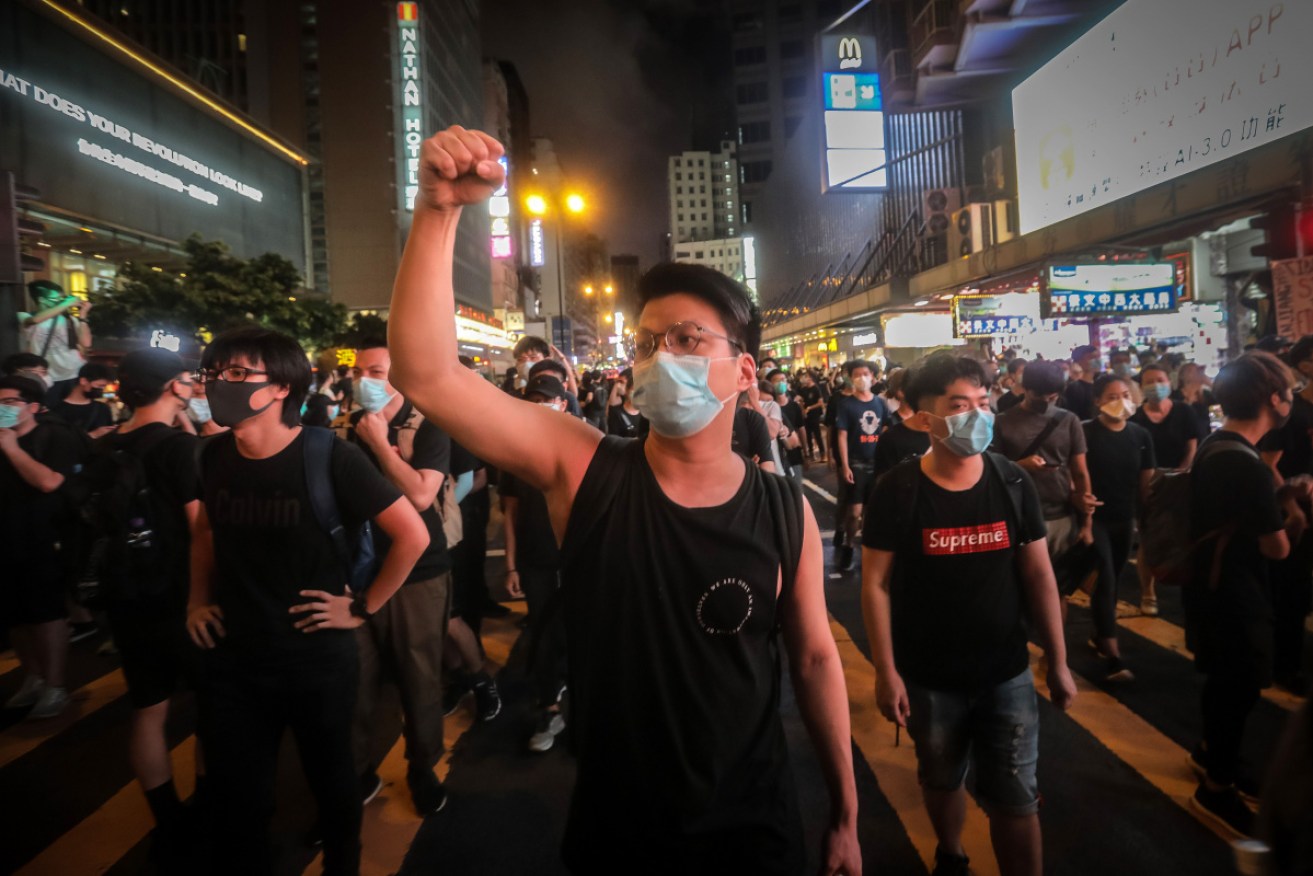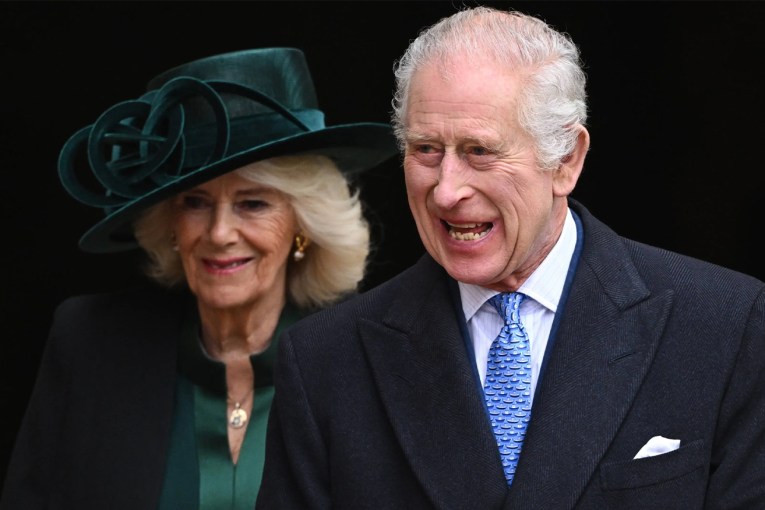Hong Kong protest targets Chinese visitors

Thousands of anti-government protesters rallied outside a controversial train station linking the territory to the Chinese mainland. Photo: Getty
Tens of thousands of protesters have marched through one of Hong Kong’s most touristy areas, trying to gain support from mainland Chinese visitors for the city’s opposition to an extradition bill which has caused political turmoil.
Protests against the now-suspended bill have drawn millions of people to the streets in the former British colony in recent weeks, posing the biggest challenge Beijing has faced to its rule in the territory since Hong Kong returned to Chinese control in 1997.
The protests have received little coverage in mainland China, however, with censors blocking news of the largest demonstrations on Chinese soil since the bloody suppression of pro-democracy protests centred on Beijing’s Tiananmen Square in 1989.
The bill, which would allow people to be sent to mainland China for trial in courts controlled by the Communist Party, has triggered outrage across broad sections of Hong Kong society amid concerns it threatens the much-cherished rule of law that underpins the city’s international financial status.
Hong Kong has been governed under a “one country, two systems” formula since its return to Chinese rule, allowing freedoms not enjoyed in mainland China, including the right to protest and an independent judiciary.
China and Britain have engaged in a public spat over the bill but Chinese ambassador Liu Xiaoming told BBC TV on Sunday that China was “not interested in diplomatic war with the UK” and he had full confidence in Hong Kong’s ability to resolve the situation without China’s intervention.
Protesters on Sunday marched through streets of Tsim Sha Tsui, a popular shopping destination dotted with luxury shops, to try to deliver their message directly to mainland Chinese tourists in the hope of garnering sympathy.
At times they shouted slogans in Mandarin, mainland China’s official tongue, as opposed to Hong Kong’s main language Cantonese.

A protester is detained by police officers during clashes between demonstrators and police in the Mong Kok district in Kowloon. Photo: Getty
They also handed out flyers and sent messages by social media and Apple’s phone-to-phone AirDrop system written in the simplified form of Chinese characters used on the mainland.
The short march finished at the city’s high-speed rail station that connects Hong Kong to the mainland, one of the main entry points for Chinese visitors but a sensitive spot after part of the facility came under Chinese jurisdiction last year.
“It is hoped that Hong Kong people can spread how Hong Kong people can march peacefully and bring the protest information back to the mainland to mainland visitors,” Lau Wing-hong, one of the protest organisers, told Reuters.
The march was the first major demonstration since Monday when protesters besieged and ransacked the legislative building in the heart of the city on the 22nd anniversary of the handover before being driven back by police firing tear gas.
The authorities took no chances. Police and train staff guarded every exit of the station.
Hundreds of police lined the route, temporarily closing some roads and diverting public transport.
The organisers said 230,000 people had attended the march, while police put the number at 56,000 at its peak.
The extradition bill, which has left Hong Kong Chief Executive Carrie Lam clinging to her job, would cover Hong Kong residents and foreign and Chinese nationals living or travelling through the city. Protesters want the bill withdrawn altogether.








